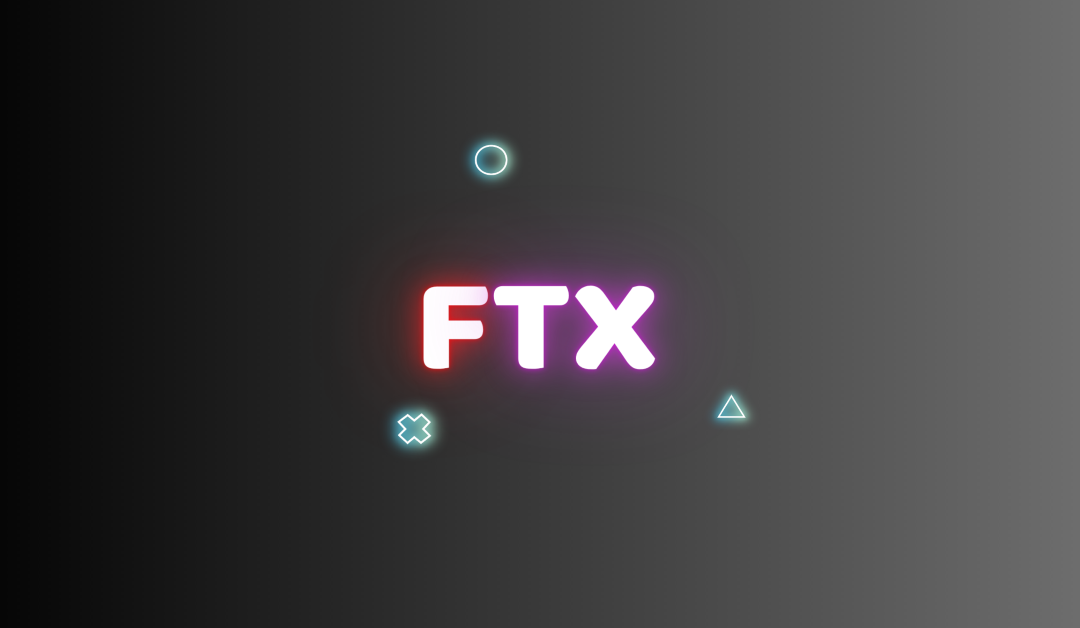
by Samuel Mbaki | Mar 27, 2023 | Banking, Cryptocurrencies
Several Chinese banks are reportedly seeking to offer financial services to crypto firms in Hong Kong despite a crypto blanket ban in mainland China. Hong Kong has been active lately in crypto regulation and plans to have a new licensing regime for crypto exchanges this June.
America out China in?
New information has surfaced via a March 27 report by Bloomberg stating that Chinese banks, including Bank of China LTD, the Bank of Communications Co., and Shanghai Pudong Development Bank, are lining up to support crypto establishments in Hong Kong.
One source stated that a Chinese bank sales representative even visited a main office of a crypto company to pitch banking services despite the current ban. Reports have also been surfacing that China could be on the way to reconsidering the blanket ban on cryptos.
Such developments would be vital, considering that some lawmakers in the US are not so happy with the crypto space. They are using enforcement measures to regulate the space, charging crypto exchanges and platforms heavily for not registering while not offering chances for them to do so.
However, the readoption of crypto in China is still unconfirmed and only time will tell how far it will go and the role it might play in revitalizing the crypto space. Keep watching Fintech Express for updates on this and other financial technology-related news.

by Jefferson Nunn | Mar 21, 2023 | Cryptocurrencies
All successful technologies in the past few decades experience five major waves. Crypto is nearing wave five. Unlike other major technologies, Crypto is unique in that not only does it tie technology to finance, but it also represents a major paradigm shift in our approach to work.
One of the unique crypto aspects is this philosophical underpinning about how work is done. The removal of even one potential overlord from the traditional workflow – a “boss” if you will – has the traditional finance community completely riled up. It is my opinion that the centralized finance debacles that we have seen has led to the current atmosphere of distrust within the crypto community. We must restore trusted communications between project leaders if we are to continue crypto’s evolution beyond wave 5.
Crypto technology is usually associated with just a faster way of paying someone. For example, $100 is converted to some number of bitcoins and sent to another address within minutes. Although this is a major ‘selling’ point of crypto, it is not the only aspect of crypto’s evolutionary approach to finance. Decentralized Finance, NFT’s and Smart Contracts are major evolutionary steps that has increased the fear and loathing of crypto by leaders of Centralized Finance.
The average consumer is not well informed by their usual sources of news. Industry publications such as Forbes, the Wall Street Journal and others has positioned crypto as something to fear. This is because Smart Contracts has removed the traditional concept of an overlord. The traditional finance community has long held the belief that an asset manager is required to manage any financial asset. A banker, a stockbroker, an investment advisor and so on are examples of these.
Decentralized Finance (DeFi) has removed the need for such individuals. An asset can be placed within a DeFi Cryptocurrency Smart Contract and earn compounded interest automatically. Sometime between 2013 and 2015, I believe that this new concept was seen as a major threat to Centralized Finance (CeFi) and their community rallied to create many CeFi Cryptocurrency exchanges with the same appeal as the DeFi Cryptocurrency Smart Contracts.
FTX, Voyager, Luna, Celsius and many others came out of the 2015 boom and bust cycle. When each of these exchanges failed, a new word was spread by traditional finance journals, such as the Wall Street Journal. To wit, their headline reads: “Contagion” and “Fear” spreads in the Crypto community. There are now so many TV shows, articles and more that state that Crypto is something to be afraid of. Investors have lost “billions” to crypto. A more accurate article would be to say that investors were scammed by the centralized finance community utilizing the selling points of crypto technology.
Throughout this entire process, the crypto technology has continued to improve and mature. Ethereum has switched to proof of stake and is continuing to evolve in both transaction speed and technical language capabilities. There are many crypto projects that are evolving as well. Solve.care, Drone Industry Systems, Presearch and many others are leveraging the crypto technology to create something better for all of us. Within each of the three projects, it is not necessary to be an investor of the project to receive a benefit.
With Solve.Care, one can just be a member of an exchange and then to see a doctor. The care wallet takes care of everything. With Drone Industry Systems, one can rent rooftop space or place a drone within their network. With Presearch – simply search on Presearch.com. Each of these services has an access point for a traditional user of the system. Crypto technology is leveraged to provide an enhanced experience for the end user. If one is interested to become an investor of these projects, then the traditional rule of finance still applies – due diligence is necessary. I suspect that even these rules needs to be enhanced over time such that investing into and providing governance around these projects becomes meaningful. DAO is still in the early days and it will likely take at least a decade before DAO’s become commonplace and standardized.
Regardless, it is important to continue to communicate. Traditional Finance does not have a lot of runway left. The formula behind it is simply broken beyond repair. Any true dashboard that examines the underpinnings of even the US Dollar is flashing code red. I hope and I pray that cryptocurrency can provide a stable foundation for the language of energy. It can and it has done some incredible things over the last decade. But what it has not been able to do is to restore trusted communications between project leaders.
There must be a way that we can continue to communicate and to share projects without the fear and loathing that these centralized financial leaders have so wrongly imposed upon us. To our audience, we cannot be held to such a high standard to imply that any spoken word is the absolute truth beyond the shadow of a doubt. We have all been wrong at some point or other in our lives. We have all associated with undesirables from time to time. Such are the rigors of life.
If we communicate about a project, this does not imply endorsement of any kind. Each of us will do as much as we can to examine a project. If it looks cool or exciting, we might invite others to examine the project. By no means do we imply that everyone should immediately become accredited investors and to deploy their life savings in the gamble that they will immediately become rich. This concept is a creation by centralized finance leaders and spokespersons. They portray themselves as the gatekeepers of the overnight success sensation. That one requires an investment advisor to immediately gain unimaginable wealth. There are no genies in this world. And the world has long used up its’ three wishes.
What cryptocurrency can do – through some seriously hard work by some talented individuals – is to save our world from a certain death. Capitalism is on a path to consume itself and to leave nothing left. One look at Putin’s threats to unleash a radioactive end to this world is sufficient. All of this fear leads to the immediate reaction to shell ourselves off from the world and to speak no further evil. This cannot and does not work.
We must communicate to a community. We must share in our understanding of a broader world and to invite participation in and of it. No person is an island.
Sharing our understanding about another project to a community does not imply an endorsement or investment advice. It simply is saying to the world, “hey look – I found something cool and exciting!” In this way, we can all work together towards a better world.
If a project shares a coupon code or a lead generation form from another project, it doesn’t mean that the other project is a guaranteed winner. It may just be a way for the community to examine the project and to learn more about it for any variety of reasons.
On standard TV Talk Shows, Oprah Winfrey shares many products. These products do not carry her endorsement. There have been several spectacular failures of a product featured by Oprah. There are also many good products that the consumers have enjoyed. Oprah is not judged by the products that she features. She invites the owners of the products onto the air to discuss the products to her audience. The audience can make up their own mind about the product. She is using her capabilities as a leader to interview other leaders.
The crypto community needs to get past its’ fear of another. There will be failures. There will be successes. Over time, standards will be created and the crypto community will soon enjoy the fifth wave.

by Samuel Mbaki | Feb 21, 2023 | Cryptocurrencies, Regulation
Christopher Emms has been allegedly arrested and detained in Moscow for aiding North Korea with its crypto pursuits. It’s not Emm’s first time to be arrested on the matter as he had been in Saudi custody too but was released for lack of enough evidence.
Moscow detains a suspect for aiding North Korea
The Moscow bureau of Interpol has allegedly detained Christopher Emms in connection with past allegations of consulting for North Korea in crypto-related services. The British Citizen was arrested upon his landing in Moscow as his name had been on Interpol’s “red notice”
The 31-year-old British Citizen is alleged to have contacted North Korea and consulted for them in April 2022 alongside Spanish national Alejandro Cao De Benos. Interpol alleges that the two offered knowledge to North Korea on how to use blockchain technology and cryptocurrency in money laundering and evasion of sanctions.
More information indicates that the two planned and moderated the 2019 Pyongyang Blockchain and Cryptocurrency Conference. It also indicated that there was a third person in the conspiracy, Virgil Griffith, a former Ethereum developer. Griffith was arrested by the Federal Bureau of Investigation in November 2019 and pleaded guilty to the charges, which ended up getting him 63 months in prison.
Now, Emms could face up to 20 years in jail for one count of conspiring with North Korea to violate the International Emergency Economic Powers Act.
Crypto crackdowns continue
Crypto crackdowns are increasingly becoming a hot trend in the crypto market. The US has been at the forefront of these crackdowns. Earlier this month, the US settled charges with Kraken crypto exchange and continued taking legal action against crypto exchange founder Sam Bankman Fried. Binance plans to settle charges with the US SEC by taking a penalty.
The UK has been adamant about a crypto advertisement, a stance South Africa is also taking. The two countries seek to free their citizens from the dangers of wrong and deceitful crypto advertisements.
These efforts foreshadow a coming regulatory clean-up in the crypto space. Keep watching fintechexpress for this and other news as soon as they happen.

by Fintech Express | Feb 10, 2023 | Banking, Cryptocurrencies
JP Morgan, one of the largest investment banks in the world, has lately made a vaticination about the future of finance in the DeFi( Decentralized finance) space. According to the bank, deposit tokens could soon trade on DeFi platforms in an analogous manner to stablecoins.
JP Morgan thinks tokenized deposit tokens could rival stablecoins
Stablecoins are digital assets pegged to the value of an existing currency or have become decreasingly popular in the DeFi and crypto space to give stability to the frequently unpredictable cryptocurrency request. Deposit tokens, on the other hand, are assets that represent a claim on a bank deposit.
JP Morgan and consulting firm Oliver Wyman have released a report on how DeFi could be a green field for traditional banking, particularly deposit tokens. The two believe that deposit tokens could be tokenized to operate on different blockchains, with the issuer responsible for creating a DeFi-like infrastructure.
JPMorgan believes that deposit tokens could offer a new way for investors to pierce the DeFi space, as they would give a position of security and stability analogous to traditional bank deposits. The bank also believes that deposit tokens could give way for institutional investors to gain ground in the DeFi space, as they offer a familiar and regulated investment option.
Blockchain technology to continue reshaping the finance world?
This vaticination from JPMorgan is significant as it shows the growing significance of DeFi in finance and highlights the eventuality for traditional fiscal institutions to get involved in this arising request.
It’s one of the starts of a long path where banks will adopt crypto and blockchain technology. It also shows a growing interest in the crypto space by banks and other stakeholders of the traditional finance sector.
It remains to be seen how deposit tokens will be welcomed by the DeFi community and how they will fit into the overall ecosystem; additionally, JP Morgan’s vaticination is one to watch as the DeFi space continues to evolve and develop.

by Fintech Express | Feb 9, 2023 | Cryptocurrencies, Regulation
On Thursday, Coinbase CEO Brian Armstrong shared a Twitter post saying the US SEC had plots to do away with crypto staking. His Twitter thread sparked mixed reactions as the crypto community took it as a potential attack on the innovation.
Armstrong condemns SEC attack on crypto staking
In his Twitter thread, Armstrong said that they are hearing rumors the SEC would like to do away with crypto staking in the US. He said that the main target of such enforcement would be the retail investors and added that he hopes it’s not the case as it would be a terrible path for the US.
Armstrong expressed how staking is an important innovation in the crypto space, meaning it would be catastrophic if it were to be overlooked. He explained that it allows users to participate directly in open crypto networks. He stated that it brings different positive improvements to the industry, like scalability, security, and a lower carbon footprint. As such, he believes staking is not a security.
He said that the crypto community needs to ensure that technologies and innovations are encouraged and welcomed in the US and not smothered by a lack of clear rules. He added that if such financial and Web 3 tools were to be built outside the country, it could be a matter of national security.
Is regulation going to kill crypto?
In his thread, Armstrong said there are better ways out than regulation by enforcement. He said it encourages companies to operate offshore, like in the case of FTX, which could be a danger to the finance sector as they cannot be adequately monitored.
He added that he hoped all stakeholders could work together to develop clear rules governing the industry. He said such rules should be sensible solutions to protect consumers and preserve innovation and national security interests in the US.
His comments attracted mixed reactions. Cardano Co-Founder Charles Hoskinson responded and claimed that ETH staking is problematic. He explained that temporarily giving someone else your unregulated assets to help them get a return does not look good. He said a lack of good innovation that allows for staked money to be accessed and decentralized could end up lumping all betting together.

by Fintech Express | Jan 31, 2023 | Banking, Cryptocurrencies, Regulation
FTX meltdown has been monumental. Now, a series of events haunt Bankman-Fried and keep him away from what was once his crypto estate.
FTX keeps haunting Bankman-Fried
Things are getting hard for Sam Bankman-Fried as regulators prepare for the October trials, and FTX is getting liquidated. He is under house arrest after being granted a $250M bail.
Since his release, Bankman-Fried has been trying to access FTX and Alameda Funds and ‘prove’ his innocence to no avail. All that seems to be working against him. Yesterday, a series of events happened. Here is a breakdown of what transpired.
Judge rules that SBF’s $250M guarantors be made public
In a Jan 30 ruling, two sureties of the $250M bail granted to Bankman-Fried were asked to be revealed. The New York judge ruled that the two unnamed individuals who have been hidden since the bail terms were made and signed can now be exposed.
This news shocked Bankman-Fried’s legal counsel, who had highly contested that the individuals’ identities remain hidden, citing security reasons. The Judge has given them until Feb 8 to contest the ruling.
Alameda Research sues bankrupt Voyager Digital for $446M
FTX’s sister company, Alameda Research, is suing bankrupt crypto lender Voyager Digital for $446M. The ill-fated company is seeking to claw back loan repayments that FTX had made to the crypto lender before filing for bankruptcy in November.
The lawyers managing FTX and Alameda filed the motion against Voyager in a Delaware court on Jan 30. The development twist is that both companies filed for bankruptcy in 2022, but voyagers came four months earlier. Following its bankruptcy filing, it demanded that FTX and Alameda repay all loans.
According to FTX lawyers, these loans need to be clawed back as they were made near November when the exchange filed for bankruptcy. FTX claims to have paid $248.8M in September and another 4193.9M in October. It also made a $3.2M repayment of the loan’s interest in August.
The lawyers claim that the exchange used customer deposits to make the payments, meaning the process was irregular. Voyager ought to refund it so the exchange’s users can be repaid.
Justice Dept wants SBF not to access FTX and Alameda assets
The US Department of Justice is siding with a filing that seeks to bar Bankman-Fried from accessing FTX and Alameda Assets. Prosecutors are not happy that Bankman-Fried tried to contact both FTX bankruptcy CEO John Ray and FTX US general counsel Ryne Miller. The prosecutors have even produced the text and email messages between Bankman-Fried and John Ray.
In Jan 30 filings, the Department of Justice responds to a recent move by Bankman-Fried’s lawyers to amend his bail conditions, including not contacting former or current FTX employees. Bankman allegedly wanted to meet John Ray in New York to explain how Ray could access the funds.
On Jan 12, Bankman-Fried had also claimed that law firm Sullivan & Crowell had pressured him into naming Ray as his successor. In response, Ray claimed that after filing for bankruptcy, Sam Bankman-Fried was no longer the FTX CEO, and he has no role in the company, therefore, no authority to talk on the company’s behalf.






